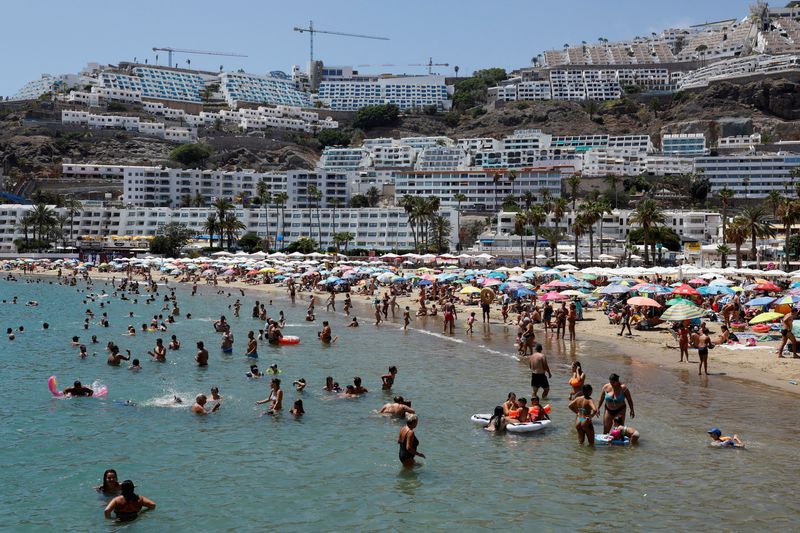Spain’s job creation sped up during tourism’s bumper summer
2023.10.26 05:16
2/2

© Reuters. FILE PHOTO: Tourists bathe and sunbathe on the beach of Puerto Rico in the south of the island of Gran Canaria, Spain, August 6, 2023. REUTERS/Borja Suarez/File Photo
2/2
MADRID (Reuters) – Spain created thousands of new jobs during the summer even as the unemployment rate inched up, as strong demand pushed more people into the labour market, data from the National Statistics Institute (INE) showed on Thursday.
The country added a net 209,100 formal jobs in the quarter, INE said. The unemployment rate rose to 11.84% in the third quarter from 11.60% in the previous three months but remained well below the rate of 12.67% in the third quarter of 2022.
Strong labour markets generally push up both the number of people reporting themselves as unemployed and the number of active people – those who say they are open to work – as more of those who are out of the market think it is easier to find a job.
“The labour market is holding up despite the economic slowdown,” said Raymond Torres, chief economist at Funcas.
He noted that 70% of the jobs created in the third quarter were taken by foreigners.
The service sector led job creation thanks to a strong summer season in Spain with tourism returning to pre-pandemic levels.
The year-on-year rate of job creation accelerated to 3.5%, with almost 700,000 more people in work over the past year.
Spain broke two records in the third quarter: it surpassed the level of 24 million people declaring themselves as active, and the number of people working exceeded 21.2 million.
However, the number of unemployed climbed to 2.8 million, still one million more than before the 2008 financial crisis.
Temporary employment -the biggest problem of the job market in Spain where most contracts are of short duration- fell to 17.6% and the government highlighted in a statement the improvement in almost all indicators in all regions.
A strong labour market in Spain is in line with the government’s expectation for 2.4% economic growth this year, alligned with analysts’ forecasts and faster than the other large European Union economies.








